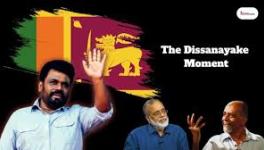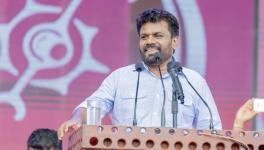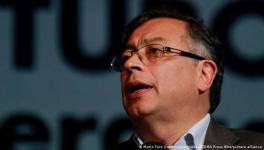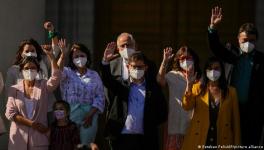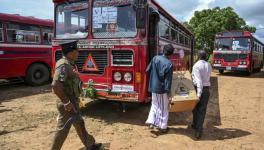Sri Lanka: Left Alliance Wins Two-Third Majority in Parliament
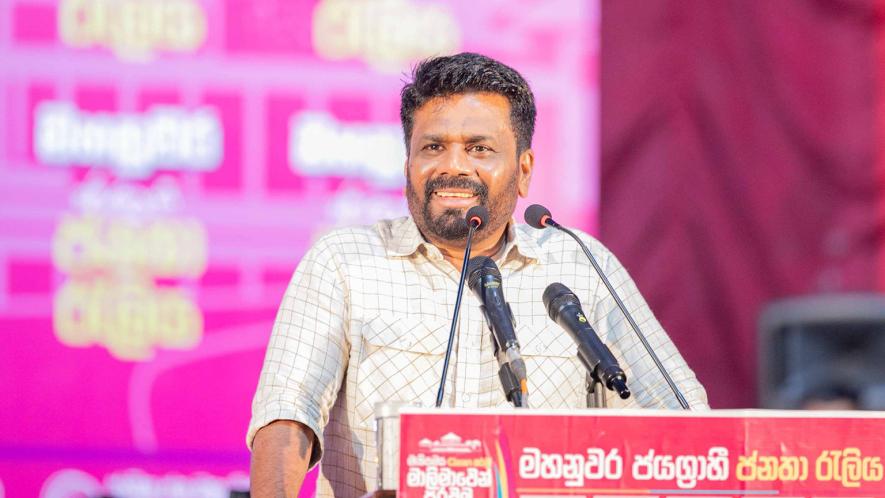
Photo: Anura Kumara Dissanayake/X
As per results announced by the Election Commission of Sri Lanka on November 15, the left-wing Jathika Jana Balawegaya or National People’s Power (NPP) alliance emerged as the clear winner in the country’s parliamentary elections. The left alliance won an over two-thirds majority and successfully consolidated its power weeks after winning the presidency.
The NPP, led by president Anura Kumara Dissanayake, won 159 seats out of the total 225 in the country’s parliament with its nearest rival, the centrist Samagi Jana Balawegaya (SJB) led by Sajith Premadasa, getting just 40 seats.
NPP received around 6.8 million votes or nearly 62% of total. There were 17 million eligible voters in the elections which were held on Thursday. The total voter turnout was 65%.
Ilankai Tamil Arasu Kadchi (ITAK), the main party representing Tamil minorities in the island nation, has been able to maintain its popular base by winning 8 seats and retaining its third position in the parliament. In the last parliament it had 10 seats.
Out of the 225 seats in the Sri Lankan parliament, 196 are directly elected. The rest of the seats, called the National List, are allocated to the parties proportionate to their vote share in the national elections. The majority mark in the parliament is 113.
NPP won 141 directly elected seats and was assigned 18 out of 29 National List seats. In the last parliament it had just three seats. Similarly, SJB got 35 directly elected seats and was assigned five seats in the National List. In the last parliament SJB had 54 seats.
Former president Mahida Rajapaksa’s Sri Lanka Podujana Peramuna (SLPP), which was the largest party in the last parliament and ruled the country in alliance with other smaller parties, won just two seats with a little over 350,000 votes. It had 103 seats in the last parliament.
Another major player, United National Party (UNP), led by Ranil Wickremesinghe, was reduced to just 1 seat with a little over 66,000 votes. UNP had historically been the most-voted party, ruling the country for most of the time since its independence.
A new beginning
Following the announcement of the results, Dissanyake thanked the voters calling his party’s victory a “renaissance” for Sri Lanka.
The snap parliamentary elections were called several months ahead of schedule, just seven weeks since Dissanayake won the presidential elections in September this year.
The NPP which is an alliance of left-wing Janatha Vimukthi Peramuna (JVP) and several social and civil society movements has emerged as the country’s leading political formation after remaining a small force for decades.
The NPP had just three seats in the last parliament with less than 4% of the vote. During the 2019 presidential elections, Dissanayake had won just three percent of the vote.
The NPP’s emergence as a viable political alternative to the traditional ruling parties in Sri Lanka has a lot to do with its significant role in the popular mobilizations during the Aragalaya, or popular protests in 2022. The protests, which forced the then president Gotabaya Rajapaksa and his brother and Prime Minister Mahida to resign, emerged after their government’s mismanagement of the economy and its failure to deal with the hardships faced by the people.
Even the interim government formed under the leadership of Sri Lanka’s veteran politician Wickremesinghe failed to address the popular economic grievances.
Its victory in the parliamentary election was considered crucial, given the fact that despite winning the presidency, Dissanayake had failed to secure the 50% popular votes during the first round of elections and had to go for a runoff.
The overwhelming win in the parliament would help him gain the required legitimacy and fulfill his electoral promises of ridding the country of corruption and economic troubles created by the previous governments.
NPP won a significant number of seats in the Tamil dominated Jaffna and other minority dominated regions, despite JVP being historically considered as a Sinhalese nationalist and anti-Tamil party.
During election campaigns, Dissanayake asked the voters for a new beginning by “cleansing the parliament” from old parliamentary elites. He had also campaigned against the traditional ethnic divisions in the country, claiming that “the era of dividing and setting one community against the other has ended” and repeatedly calling for “building the nation together” during his rallies.
Get the latest reports & analysis with people's perspective on Protests, movements & deep analytical videos, discussions of the current affairs in your Telegram app. Subscribe to NewsClick's Telegram channel & get Real-Time updates on stories, as they get published on our website.









